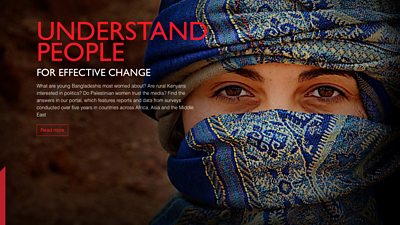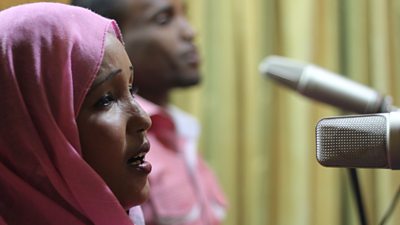Downloads
Research summary
Published: July 2022
����ý Media Action’s ‘Somali Women towards Economic Empowerment and Transformation’ (SWEET) project aims to help Somali women to better participate in the informal and formal business sector. This study found that the radio content and local discussions are helping to achieve that goal.
Women in Somalia face multi-layered barriers to accessing the labour market and bear the brunt of the hardships resulting from poverty, conflict and clan-based culture which promotes strict male hierarchy and authority. This challenging situation worsened with the arrival of Coronavirus, which impacted on the economic situation. Within this context we have been delivering the SWEET project, funded by Norwegian Agency for Development Cooperation (NORAD), since 2018. The second phase of the project had an additional emphasis on supporting women to continue working safely during COVID-19 and ran from July 2020 to December 2021.
The project continued the production of Mawjaddaha Baraarugga (Making Waves), a weekly national radio magazine programme, which included a 15-minute drama segment and engaging social media content. We conducted capacity-building with five partner radio stations to help them produce their own localised versions of Making Waves, and 400 Somali women attended business development training undertaken by Shaqodoon, a non-profit organisation based in Hargeisa.
Methodology
This evaluation, conducted at the end of phase 2, sought to understand how target audiences engaged with the radio programmes and what impact the project was having on encouraging women’s greater participation in, and benefit from, economic activities. Using a mix of face-to-face and remote methods, 12 mini-focus group discussions were conducted with target audiences, as well as five key informant interviews with influential men and women working in the formal business sector. This study explored the effectiveness of mentoring provided to the five local radio stations through in-depth interviews with producers and station managers at partner radio stations. We also collected qualitative and quantitative data to understand the impact of the business development training.
Key findings
Listeners were engaged with the programmes and saw them as important and educational. They appreciated the expert advice that showed them ways to improve their business. The programmes were seen to encourage women in business, and listeners reported that the programme helped them to understand and use preventative measures during COVID-19, while enabling them to carry on with their businesses.
The programme has given us a lot of confidence, including perseverance and patience.”
Husbands, fathers and influential men reported that the programme had encouraged them to feel more confident in women’s ability to succeed in business, and this had encouraged some to support their wives or mothers. Some men reported that they had invested in their wives’ businesses and supported them by sharing what they had learned from the programme, such as how to manage their finances.
Listeners said they usually discussed the programme’s topics with others. There was some evidence that male listeners have discussed the role of women in business and the importance of men supporting women. Some listeners of the programme said they were able to change their peer group’s perceptions that a woman’s role is limited to the home.
A friend of mine…believed that women can’t do anything and their responsibility is to be at home. He was impressed when I sent him the programmes....he said, these are one of the things that changed his mind and we discussed it.”
The media managers and producers reported that the mentoring support by ����ý Media Action helped them to select different topics and contributors, including experts and women who have overcome challenges in business. They also reported learning the importance of including voices of different groups of marginalised women. The staff we interviewed hoped to continue producing local discussion programmes in the future.
Research that focused on the business training by Shaqodoon found that participants learned a range of basic financial skills. The majority of trainees said the most useful session was financial record keeping.
The training was helpful, I made a book to know everything I sell and spend, and also I learned the loss and profit.”
Implications
This research has highlighted that the programming is encouraging men to support their wives in business. Changing gender and discriminatory norms is difficult and takes time. In future, the research could investigate gender norms in more depth to understand better the challenges that women face. Phase 3 will continue to follow the popular format and theme of the current radio show with a mix of discussion elements and drama, and there will be further emphasis on expanding the social media content. Programming will continue to address discriminatory norms around perceptions of women’s capability, and their role within the home, to build wider support for women in business and work.
Find out more about the SWEET project here.
Our research library
-

Long reads
Read our comprehensive research reports of the evidence behind our work. All of our publications are freely available to download. -

Short reads
At a glance, explore key findings and evidence behind our work. All of our publications are freely available to download. -

By country
Explore our findings and analysis country by country. All of our publications are freely available to download. -
 What are young Bangladeshi's most worried about? Are rural Kenyans interested in politics? Do Palestinian women trust the media? Find the answers in our data portal (last updated 2020).
What are young Bangladeshi's most worried about? Are rural Kenyans interested in politics? Do Palestinian women trust the media? Find the answers in our data portal (last updated 2020).
